Filter by
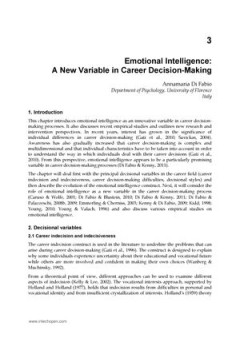
Emotional intelligence a New Variable in Career Decision-Making
Emotional Intelligence: A New Variable in Career Decision-Making
- Edition
- -
- ISBN/ISSN
- 9789533078380
- Collation
- -
- Series Title
- -
- Call Number
- -
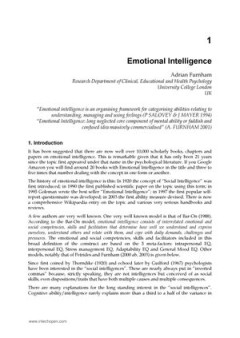
Emotional Intelligence
Emotional Intelligence
- Edition
- -
- ISBN/ISSN
- 9789533078380
- Collation
- -
- Series Title
- -
- Call Number
- -
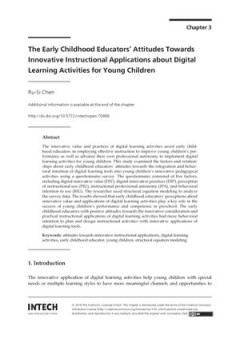
The Early Childhood Educators’ Attitudes Towards Innovative Instructional A…
The innovative value and practices of digital learning activities assist early childhood educators in employing effective instruction to improve young children’s performance as well as advance their own professional autonomy to implement digital learning activities for young children. This study examined the factors and relationships about early childhood educators’ attitudes towards the in…
- Edition
- -
- ISBN/ISSN
- 9789535137382
- Collation
- -
- Series Title
- -
- Call Number
- -
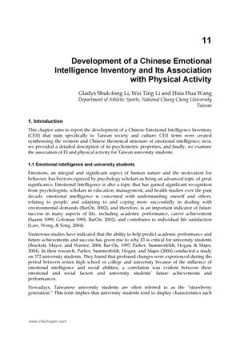
Development of a Chinese Emotional Intelligence Inventory and Its Association…
Development of a Chinese Emotional Intelligence Inventory and Its Association with Physical Activity
- Edition
- -
- ISBN/ISSN
- 9789533078380
- Collation
- -
- Series Title
- -
- Call Number
- -
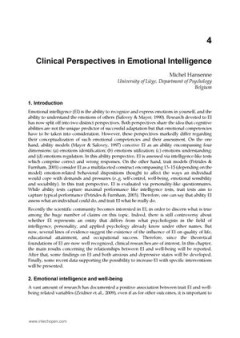
Clinical Perspectives in Emotional Intelligence
Clinical Perspectives in Emotional Intelligence
- Edition
- -
- ISBN/ISSN
- 9789533078380
- Collation
- -
- Series Title
- -
- Call Number
- -
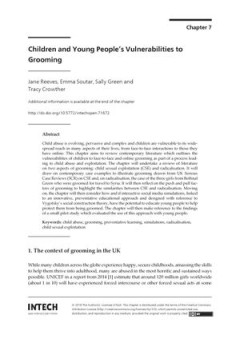
Children and Young People’s Vulnerabilities to Grooming
Child abuse is evolving, pervasive and complex and children are vulnerable to its widespread reach in many aspects of their lives, from face-to-face interactions to those they have online. This chapter aims to review contemporary literature which outlines the vulnerabilities of children to face-to-face and online grooming as part of a process leading to child abuse and exploitation. The chapter…
- Edition
- -
- ISBN/ISSN
- 9789535137382
- Collation
- -
- Series Title
- -
- Call Number
- -
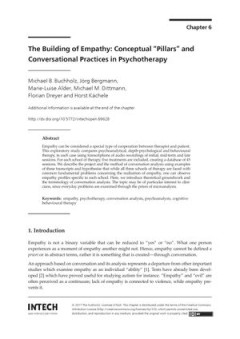
The Building of Empathy Conceptual “Pillars” and Conversational Practice…
Empathy can be considered a special type of cooperation between therapist and patient. This exploratory study compares psychoanalytical, depth-psychological and behavioural therapy, in each case using transcriptions of audio recordings of initial, mid-term and late sessions. For each school of therapy, five treatments are included, creating a database of 45 sessions. We describe the project and…
- Edition
- -
- ISBN/ISSN
- 9789535134534
- Collation
- -
- Series Title
- -
- Call Number
- -
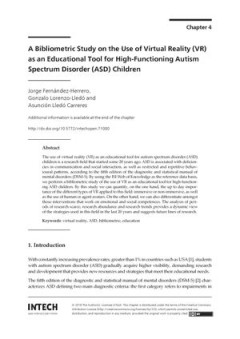
A Bibliometric Study on the Use of Virtual Reality (VR) as an Educational Too…
The use of virtual reality (VR) as an educational tool for autism spectrum disorder (ASD) children is a research field that started some 20 years ago. ASD is associated with deficiencies in communication and social interaction, as well as restricted and repetitive behavioural patterns, according to the fifth edition of the diagnostic and statistical manual of mental disorders (DSM-5). By using …
- Edition
- -
- ISBN/ISSN
- 9789535137382
- Collation
- -
- Series Title
- -
- Call Number
- -
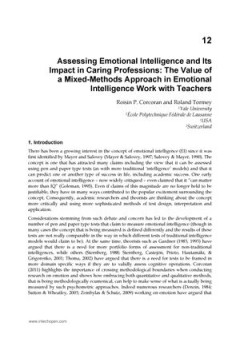
Assessing Emotional intelligence and Its Impact in Caring Professions The Va…
Assessing Emotional Intelligence and Its Impact in Caring Professions: The Value of a Mixed-Methods Approach in Emotional Intelligence Work with Teachers
- Edition
- -
- ISBN/ISSN
- 9789533078380
- Collation
- -
- Series Title
- -
- Call Number
- -
 Computer Science, Information & General Works
Computer Science, Information & General Works  Philosophy & Psychology
Philosophy & Psychology  Religion
Religion  Social Sciences
Social Sciences  Language
Language  Pure Science
Pure Science  Applied Sciences
Applied Sciences  Art & Recreation
Art & Recreation  Literature
Literature  History & Geography
History & Geography